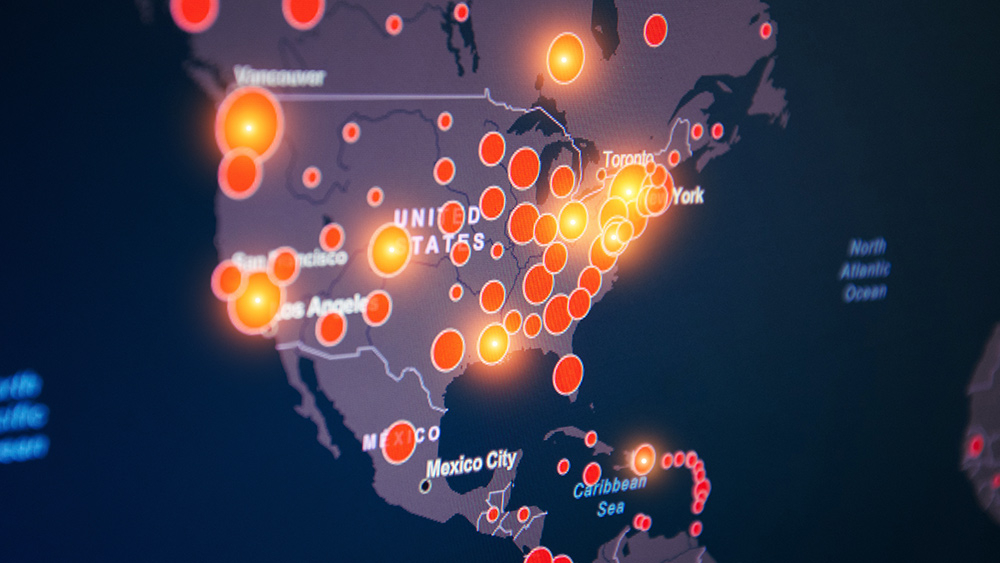Italy’s coronavirus lockdown leaves citizens in poverty and unable to rebound because of economic restrictions
07/01/2020 / By Arsenio Toledo

Italy lifted its two-month-long lockdown on May 18. But, its impact will be felt for far longer, as the measure also caused the country’s worst economic downturn in 75 years.
On March 8, the Italian government placed the northern parts of the country under cordon sanitaire; this was then extended nationally the next day. While the country has emerged from it last month, the lockdown has left many Italians struggling, with no means to regain lost incomes. Small business owners are faced with the challenge to reopen under heavy coronavirus restrictions. Meanwhile, the tourism and entertainment industries are fighting an uphill battle, given economic restrictions and a worldwide slump in demand.
It’s worth noting that the economic crunch Italians are reeling from is also felt in many countries. In Spain, the government is planning to roll out a universal basic income to combat post-pandemic poverty, while in the U.K., nearly a million people applied for government aid during the first two weeks of April. (Related: In epic speech, Italian member of Parliament demands arrest of Bill Gates as a “vaccine criminal” for pursuing crimes against humanity.)
Listen to the Health Ranger Report by Mike Adams, the Health Ranger, as he explains how a universal basic income scheme would collapse the economy of the United States.
Italy’s “new poor” struggle to find food post-lockdown
Italy’s economy has been rocky, even before the coronavirus hit. Since the 2008 financial crisis, the country had been in constant decline. The eurozone debt crisis in 2010 rocked the economy even further, and employment data from before the pandemic showed a 9 percent unemployment rate and massive wealth inequality.
Estimates from Coldiretti, Italy’s main agricultural lobby, reveal that over a million people were left economically vulnerable by the coronavirus. Meanwhile, 11.5 million Italians have applied for financial aid, saying they have ceased receiving a fixed income. These Italians, dubbed the “the new poor,” have also brought up the total number of people requiring food assistance up to a record high of 3.7 million.
Analysts expect the lower middle class to erode further, as they expect the economy to contract by 9.5 percent this year.
“Only some [lower middle-class families] will eventually be able to lift themselves up again. Many of them never will,” added Pierluigi Dovis, a representative from the Catholic charity Caritas.
People in the country’s new poor include those who received an irregular income, as well as gray economy workers. The latter, in particular, are excluded from the country’s welfare safety net.
Charity organizations unable to provide for all families
The scale of Italy’s coronavirus crisis has stretched even charity organizations thin. Giovanni Bruno, head of Banco Alimentare, Italy’s largest food bank, said that he believes the country is dealing with an unprecedented crisis. In fact, for the first time ever, Banco Alimentare is getting calls for help from middle-class Italians.
“We are talking about educated people, people who are able to track us down on the internet,” he added. “Each time it’s like getting stabbed in the heart.”
Before the outbreak, Banco Alimentare distributed food to 1.5 million Italians – which has since risen by 40 percent in two months. The food bank has said that it cannot keep up with the spike in requests for aid, especially in Italy’s poorer southern regions, where the economic crisis is expected to last for a long time.
Another charity, L’Abbraccio says that this pandemic is unlike anything their volunteers have ever seen. In L’Abbraccio’s branch in Salerno, the number of families the charity has been helping has jumped from 160 to more than 500.
Caritas, the international Catholic charity, says that requests for help in Italy are up by 114 percent.
Too early to tell if financial aid would help
Italy’s social safety net is also struggling to help families. The “citizen’s income” is a revolutionary policy that currently provides around one million families up to 6,000 euros ($6,697) a year in financial assistance. The current government is considering a set of reforms that would expand the number of families eligible to receive the citizen’s income.
Many Italians have also received cash assistance from employment benefits and emergency cash handouts from the Italian government. This includes a 600 euro ($670) payment for part-time or self-employed workers. In Rome, many families are eligible to receive food stamps. This allows them to obtain up to 100 euros ($111) worth of groceries every week. In March, Prime Minister Conte announced that 400 million euros will be set aside to provide Italians with food stamps. Another 4.3 billion euros would be made available to mayors to help their citizens.
The Italian government has also announced plans to roll out a 55 billion euro economic support package, which includes emergency cash assistance for anybody who was not able to qualify for any previous aid payments. This will include workers who relied on income received from the gray economy.
It’s too early to tell if any of these financial assistance programs will be able to truly help Italians out during this crisis – especially those looking to get back to work but are hampered by economic restrictions. For example, 13 percent of Italy’s gross domestic product relies on the tourism industry, a sector of the economy that employs millions of people and – much like many other sectors – is unlikely to rebound for a long time.
Sources include:
Tagged Under: charity, China, Collapse, coronavirus, covid-19, economic collapse, economic reopening, economy, financial aid, financial crisis, Flu, Giuseppe Conte, government, handouts, infections, insanity, Italy, lockdown, lockdowns, market crash, outbreak, pandemic, reopening, risk, stocks, superbugs, virus
RECENT NEWS & ARTICLES
Pandemic.News is a fact-based public education website published by Pandemic News Features, LLC.
All content copyright © 2018 by Pandemic News Features, LLC.
Contact Us with Tips or Corrections
All trademarks, registered trademarks and servicemarks mentioned on this site are the property of their respective owners.





















